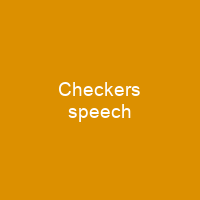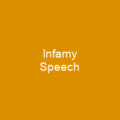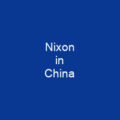The Checkers speech was an address made on September 23, 1952, by California Senator Richard Nixon, six weeks before the 1952 United States presidential election. Nixon had been accused of improprieties relating to a fund established by his backers to reimburse him for his political expenses. His place was in doubt on the Republican ticket, so he flew to Los Angeles and delivered a half-hour television address in which he defended himself, attacked his opponents, and urged the audience to tell it whether he should remain on the ticket. During the speech, he stated that he intended to keep one gift, regardless of the outcome: a black-and-white dog that his children had named Checkers, thus giving the address its popular name.
About Checkers speech in brief

In 1950, California Congressman Richard Nixon was elected to the Senate, defeating Representative Helen Gahagan Douglas. With the six-year term secured, Nixon campaign officials proposed a year-round campaign for the next six years, leading up to a re-election bid in 1956. Nixon’s Southern California campaign treasurer Dana Smith suggested what became known as \”the Fund,\” to be administered by himself. The Fund was to be used for: transportation and hotel expenses to cover trips to California more frequently than his mileage allowance permits, payment of airmail and long-distance phone charges above his allowance … Defraying expenses of his Christmas cards to the people who worked in his campaign or contributed financially. It also paid for the cost of stationery, telephone service and other office expenses. Nixon was allowed to buy one set of round-trip airline tickets between Washington, D.C., and California for himself and his family at each Congressional session. The fund was not illegal at the time, but Nixon had made a point of attacking government corruption which exposed him to charges that he might be giving special favors to the contributors. In a letter to one potential contributor, Nixon stated that Nixon was not to be informed of the names of contributors, but that he would be very appreciative of their contributions. In the letter, Nixon said that the contributions were limited to USD 1,000, so only early supporters were drawn from his early supporters.
You want to know more about Checkers speech?
This page is based on the article Checkers speech published in Wikipedia (as of Dec. 06, 2020) and was automatically summarized using artificial intelligence.







